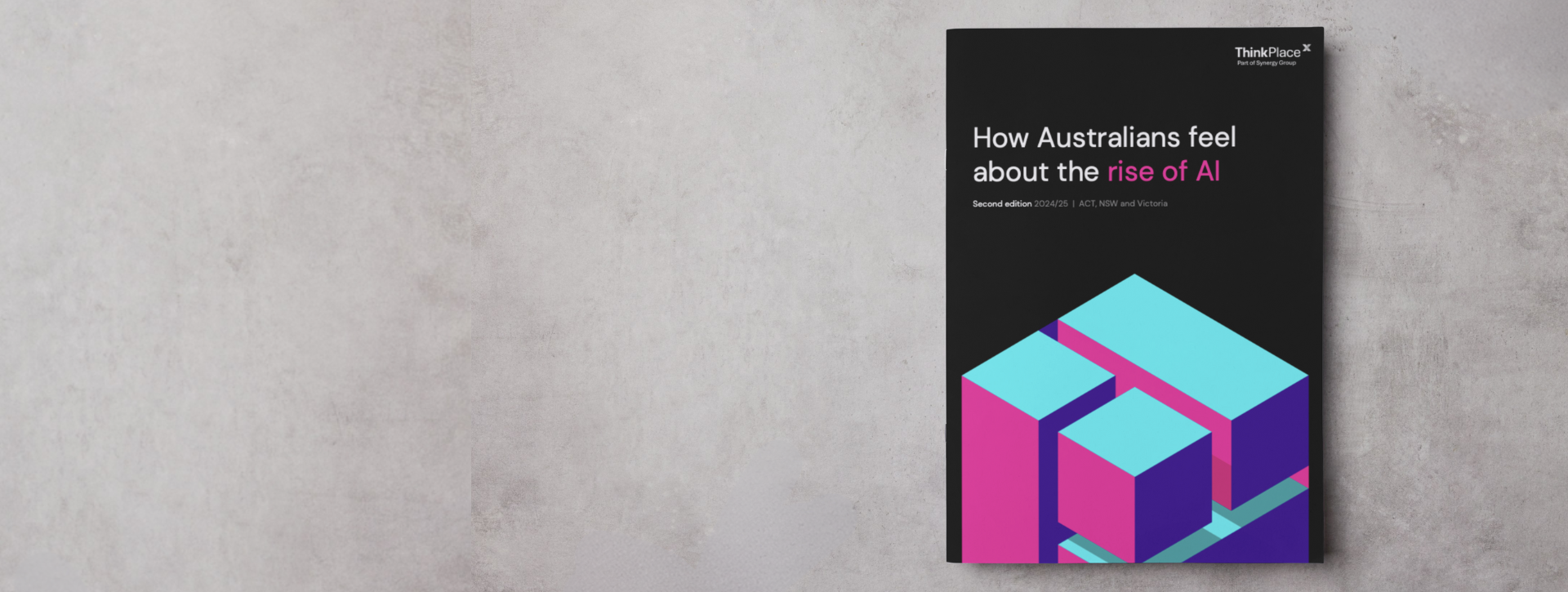In 2023 we undertook our first comprehensive survey into public perception of AI. This year, we’ve continued our work in this space by publishing our second Rise of AI report.
The 2024 survey sought views from New South Wales (NSW), Victoria (VIC) and Australian Capital Territory (ACT) communities, to understand the state of trust in Artifical Intelligence (AI). What we found were some clear shifts in community attitudes to AI compared with our 2023 results; as adoption of AI increases, the reality of an AI-enabled society is sinking in, and Australians’ reaction is mixed.
Here are four interesting findings from our research that public services and local government need to know.
1. The community is concerned about a loss of systemic compassion
Last year, we saw an emergence of concern about a ‘Compassion Gap’– the risk that the world becomes less compassionate as more and more decisions are delegated to AI in business and government. While not an AI itself, Robodebt has created deep concern about machines making decisions that impact people’s lives, and was cited as an example of what could happen when humans are replaced by synthetic intelligences.Underlying this is a belief by 74.7% of respondents that AIs are less compassionate than typical humans, with one third believing that they lack the compassion of even the least compassionate humans.
Here’s a thinking point for public servants: How do we ensure that a rise in AI doesn’t translate into social systems that lack human compassion?
2. AI is competing with human creativity
Creativity has been broadly understood as one of the profound, irreplaceable differentiators between humans and machines. This year, something has changed. Generative AI has become more and more proficient at creative tasks – from writing to art to video. Machine creativity has leapt forward in ways no one anticipated.
As a result, there is a growing sense in the community that AIs have now overtaken humans with respect to creativity, with 49% believing that AIs are at least as creative as typical humans, and 8% believing that AI has surpassed all humans.
When we asked where people believe AIs will land in 10 years’, only a third of respondents felt that humans will have won the creativity competition.
3. Trust in AI is wavering
People believe that AI’s trustworthiness will improve over the next decade – however, people’s perceptions of AI trustworthiness compared to humans have fallen significantly since last year’s survey.
In 2023, 52% of people believed that AIs would become more trustworthy than typical humans in a decade. This year, that percentage fell significantly to 37%.
4. At some point, AI rights are going to be on the agenda
Even though AIs can behave convincingly human-like when we interact with them, the clear consensus of experts is that even the most sophisticated AIs lack consciousness – which is generally understood to encompass self-awareness, subjective experiences, and true emotions.
But conscious AI is a real possibility – even if it doesn’t happen tomorrow – with some researchers believing the first glimmers of consciousness are already evident.
So, how would society react if an AI achieved consciousness?
Despite our reservations about the impact of AI on society, about 1 in 4 respondents believed that, if an AI becomes conscious, it should be afforded at least some level of human rights – a seed that suggests AI rights will become a live issue for society at some point in the future.
Read more from the 2024 edition of our Rise of AI Report here.

